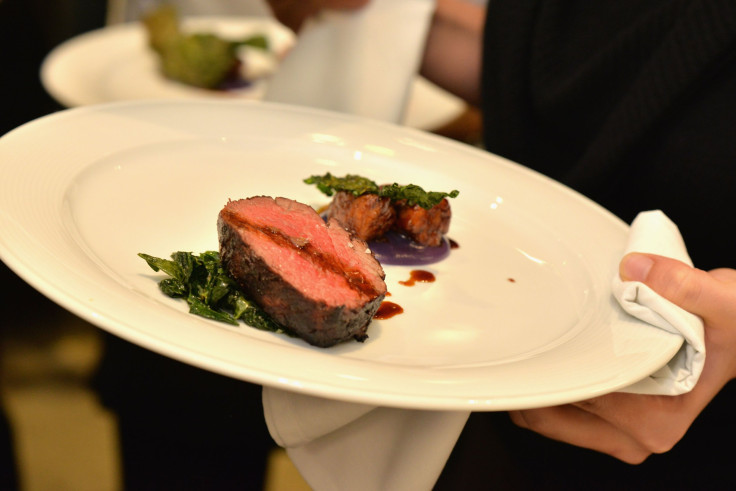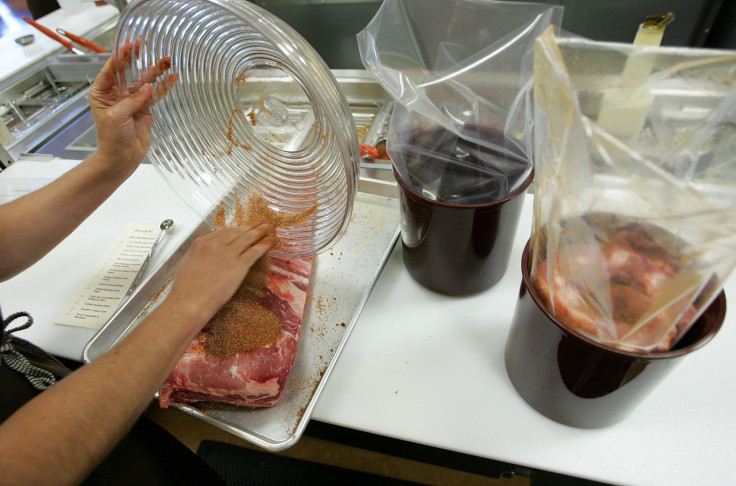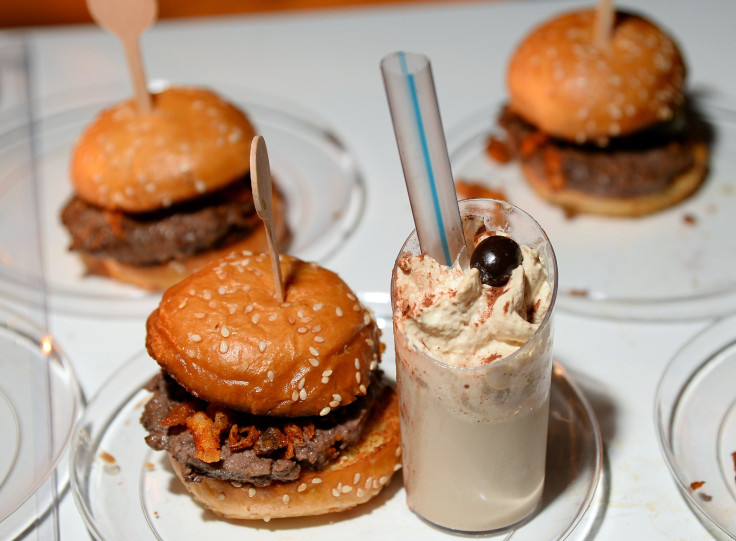Can Eating Meat Cause Cancer? Steakhouses And Meat-Lovers React To Shocking New Report

Harry’s Café and Steak in New York City was bustling Monday night with men in button-downs and women in blazers relaxing after a day of work on Wall Street. The crowd consumed cocktails and steak -- about as American as you can get.
The nation's love affair with beef was called into question Monday after the World Health Organization released a shocking report that stated eating processed meat could cause cancer and red meat might also be a “carcinogenic to humans,” linking it specifically to colon cancer. The news was greeted warily by some restaurateurs, who said the health warning could have a negative effect on sales. But most said the announcement was unlikely to stop Americans from chowing down on meat.
"I don’t think it will affect our business. People have eaten red meat for decades and decades, and steak has remained the most popular item on our menu,” said George Krpyeyan, manager of Harry’s.

Corrado Goglia, general manager of Delmonico’s in New York City, said he “highly doubts” the health report would negatively affect sales. With a menu boasting various types of pricey steaks, from a $98 double porterhouse to a $48 filet mignon, the restaurant thrives on meat-loving customers.
“People love steak; it’s part of our culture,” Goglia said. “We have started offering some vegan options, but those requests have been very minimal.”
Michael Demby, a customer of Delmonico’s waiting to be seated, said he would go to a steakhouse, “a handful of times a week” if it weren’t for the hefty price tag often associated with them. The WHO report, however, did shake the 33-year-old recruiter a bit.
“I think I will cut down or even stop eating processed meats now altogether,” Demby said. “I won’t stop going to a proper butcher that uses proper meat, like Delmonico’s. I think we should still eat meat and enjoy it, but definitely know where our meat is coming from.”
Americans have already started eating less meat in recent years, but they still consume more than health professionals recommend. The average American ate 71.2 pounds of red meat in 2012, according to the U.S. Department of Agriculture. The USDA recommends Americans consume 3.3 ounces -- or 0.21 pounds -- per day of red meat, pork and poultry for the average adult on a 2,000-calorie diet.

“I think living a healthy lifestyle involves moderation, and I don’t think we will kill anyone with our portion sizes,” said David Kreifels, owner of Laurelhurst Market in Portland, Oregon, which doubles as a steakhouse-inspired brasserie and full-service butcher shop. “The risk associated with (meat) is not massive, but people still might want to take a look at their diets.”
For Michael Dubow, who stepped outside a New York City pub to smoke on a cool October evening, the findings of the report likely won’t change his dietary habits, he said, pointing to the lit cigarette in his hand and laughing. Dubow acknowledged that he does watch how much red meat he consumes, but does not think the report will change a cuisine that is deeply engrained in the American lifestyle.
“I won’t eat a porterhouse every day, but I do love eating one every now and again,” Dubow said. “It's such a staple of American life. What's more American than grilling a nice, thick steak? I don't think it’ll change Americans’ eating habits, but I've been surprised before.”
But at Burger Burger, a fast-casual burger joint in the lower Manhattan section of New York City, the health findings were cause for concern. The eatery boasts a menu almost entirely of burgers, with healthful options including a vegan burger and a quinoa-and-kale burger to accommodate a shifting consumer demand. Co-owner Alex Ramirez said he has noticed that many customers who've come through the door recently are watching what they eat.

“Wintertime is usually when business goes down, and if this report makes it go lower we could go out of business,” Ramirez said. “I think at least in the beginning there might be a negative response. That is usually what happens when a report like this comes out.”
A restaurant manager for a steakhouse in Texas, however, said he was fairly certain the report won’t result in a dip in sales in the meat-loving state.
“In Texas, I don’t foresee that the report will have negative effect. Across the country I could see that it might. … There could be some people changing up to smaller portions sizes. For restaurants, it wouldn’t be a big deal to reprint a menu,” said Mark Dather, the restaurant manager for Kirby’s Prime Steakhouse, a chophouse that includes a 22 oz. prime “cowboy cut” on the menu. “For Texas, though, we’re big-time red-meat eaters.”
© Copyright IBTimes 2024. All rights reserved.





















